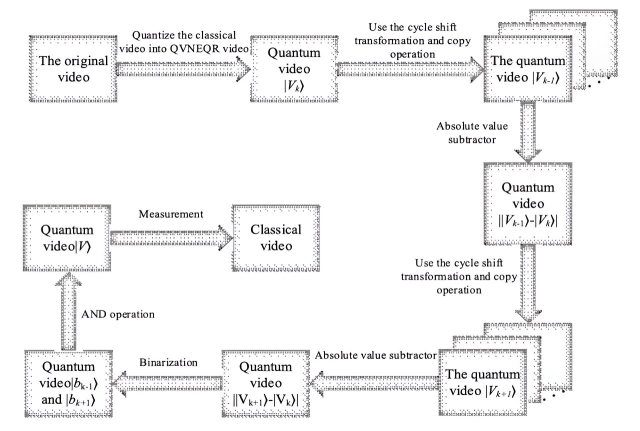We finally start to see some interesting applications of #quantum algorithms.
The algorithm for motion tracking proposed in this paper isn't very different from the classic ones. You get a sequence of frames from a video [t-1, t, t+1], do absolute subtraction, get the changes, group them into segments, and track the changes of those segments over time.
However, scanning the frames and performing operations on individual pixels is a big bottleneck in the traditional algorithm, no matter how much we try and be smart or parallelize the operation.
Reducing space complexity by simultaneously exploring multiple paths (thanks to superposition) is exactly where quantum algorithms shine.
I'm just not sure though of how much it costs to convert a "classical" video into a "quantum" domain and back - that may be the bottleneck of the proposed approach.
techxplore.com/news/2023-10-qu…

A quantum algorithm for the segmentation of a moving target in grayscale videos
Computer vision algorithms have become increasingly advanced over the past decades, enabling the development of sophisticated technologies to monitor specific environments, detect objects of interest in video footage and uncover suspicious activities…Ingrid Fadelli (Tech Xplore)